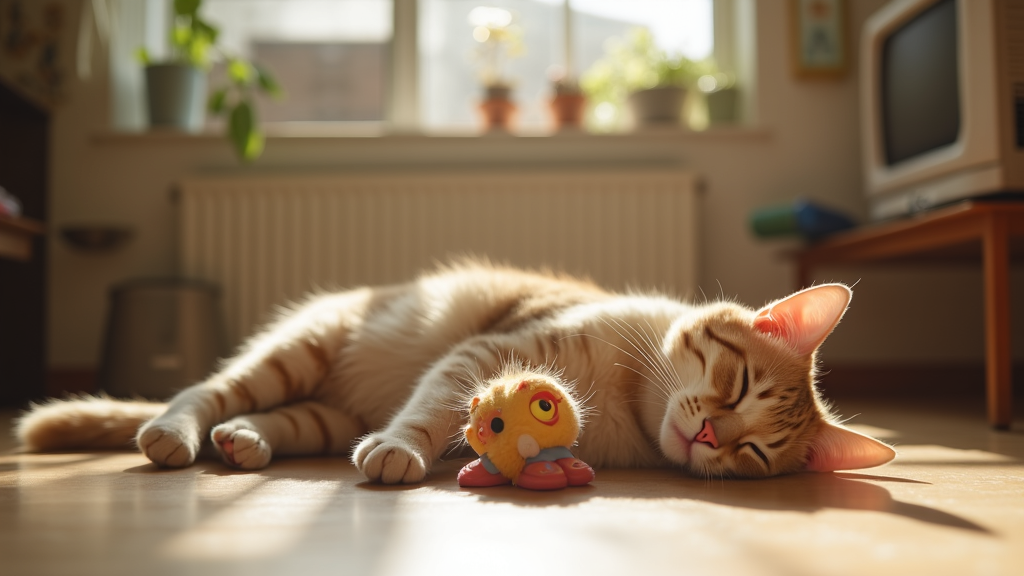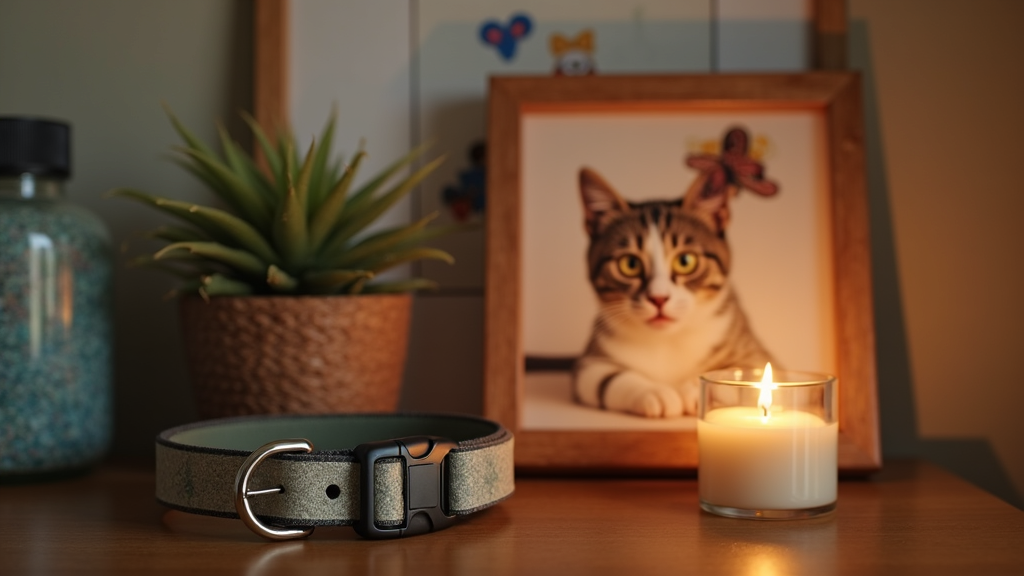Coping with the loss of a pet is something I’ve been through myself, and it’s honestly one of the hardest times anyone can face. Pets are more than animals; they’re family, friends, and a source of real comfort. If you’re dealing with the emptiness after saying goodbye to a pet, you can find ways to get through the grief while honoring those memories.

Why Pet Loss Hurts So Much
Losing a pet can hit surprisingly hard, sometimes just as much as losing a close human companion. For many people, pets are a consistent part of daily life. They’re present when you get home, offer comfort without judgment, and have routines that structure your day. That sudden gap can leave you feeling off balance and deeply sad.
There’s no need to downplay your feelings. It’s normal to miss the silly quirks, the way your pet greeted you at the door, or those quiet moments when they just seemed to know when you needed company. All those little things add up to a really big presence. Even simple reminders, like finding a stray toy or hearing a collar jingle, can catch you off guard. If you notice feelings ranging from sadness to anger or even guilt, it’s all part of a typical grieving process.
Ways to Work Through Grief After Losing a Pet
Moving through grief takes time, and there’s no right or wrong way to do it. There are some steps that help many people process the loss:
- Let Yourself Feel: It’s alright to cry and to talk about your pet. Ignoring your feelings won’t make them go away. Letting emotions come to the surface is an important part of healing.
- Share Stories: Telling funny or loving stories about your pet with friends or family helps those memories feel more positive. Sometimes, writing letters to your pet or journaling about your favorite moments brings comfort.
- Make Room for Rituals: Some people find it helpful to hold a small memorial, plant a tree, or light a candle. Actions like these give you a way to say goodbye and honor your pet.
- Preserve Keepsakes: Making a photo book or keeping a special item like a collar, favorite toy, or a paw print can help keep those memories close.
Common Emotional Reactions and How to Handle Them
Everyone reacts a bit differently, but there are a few emotions that come up a lot after losing a pet:
- Sadness: It’s super common to feel waves of sadness. Allowing yourself to cry or feel the hurt is actually a healthy sign that you loved deeply.
- Guilt: Many people wonder if they could have done more or made different choices. If you made decisions about end-of-life care, know that you acted out of love and pets rely on us to act in their best interest.
- Loneliness: Pets fill homes with energy and noise. When that changes, daily life can feel extra quiet. Try to stay connected to supportive people, even if it’s just a text or a quick call now and then.
- Relief mixed with grief: Sometimes, if a pet was very ill or suffering, relief can mix with grief. This is very common and nothing to feel bad about. Caring for a pet through tough times can be exhausting and emotionally draining.
If you’re struggling with tough emotions, don’t hesitate to check in with someone you trust. It’s important to remember that feeling these things is a testament to how much your pet meant to you. Sharing memories, tears, or even laughs about your pet can go a long way toward easing your heartache.
Supporting Kids or Other Pets Through the Loss
If you have children, they absorb your emotions and pick up on changes at home. Explain the loss simply and honestly. Sharing your own sadness can help them understand that it’s okay to feel what they feel. Encouraging kids to make cards, draw pictures, or create a scrapbook gives them a way to express sadness in a real and hands-on way.
Other pets might display changes too, such as looking for their friend, eating less, or acting out of sorts. Keeping your pets in their familiar routines and giving them extra attention during this time can smooth the adjustment. Over time, most pets settle back into a new normal, just like us.
Dealing With Well-Meaning But Unhelpful Comments
Sometimes people who haven’t lived with pets don’t really get how tough losing one can be. You might hear things like “it was just a cat” or “you can get another dog.” Responses like these can sting. It’s perfectly fine to speak up and let people know that your grief is real and meaningful. Protecting your own space and choosing to spend time around people who respect your feelings will help more than trying to explain your pain.
If you come across someone who simply doesn’t understand, don’t feel pressured to share more than you are comfortable with. Sometimes, just quietly acknowledging your feelings for yourself can help you maintain perspective and heal at your own pace.
Steps You Can Take to Move Forward
Healing is usually a gradual process. Here are a few simple ideas that might make things a bit easier along the way:
- Stick to a Routine: Pets often shape our schedules. Keeping up with walks, mealtimes, or exercise—even without your pet—gives your day some structure and can help you feel a bit better.
- Talk About It: Reach out to family, friends, or a support group that understands what you’re experiencing. Sometimes, pet loss support hotlines or forums offer a safe place when talking in person feels too tough.
- Get Outdoors: Fresh air and a change of scenery can do wonders for your mood, especially if you’re used to daily walks with your pet. Even a short stroll can help lift your spirits and refresh your mind.
- Express Yourself: Drawing, painting, or writing about your pet’s quirks or favorite things sometimes helps your memory of them feel less sad and more like a tribute to the time you spent together. Creative outlets can be healing.
When to Seek a Little Extra Help
If sadness turns into lasting depression and you feel hopeless, stuck, or unable to manage regular life, it’s a good idea to reach out for some professional support. Talking with a counselor or therapist—especially one familiar with pet loss—can really provide tools for managing tougher emotions.
Your feelings are valid and deserving of attention. Connecting with someone you trust, whether it’s a professional or a friend, can help you get perspective and feel less alone through the grieving process.
Honoring Your Pet’s Memory
Keeping your pet’s memory alive can bring comfort long after the sharpest grief fades. Here are a few ideas that I’ve found both healing and meaningful:
- Set up a spot at home with a favorite photo, collar, or toy as a small tribute. Seeing these reminders each day can offer a soft comfort.
- Create an online album or slideshow. Sharing memories and images can actually lift your spirits as you connect with others who understand.
- Volunteer at a local animal shelter. Giving time in memory of your pet is a great way to share the love they left behind and help other animals in need.
- Donate to a pet rescue or animal charity with your pet’s name. Even a small contribution helps other pets and pays tribute to the love you shared.

A Few Questions People Often Ask About Coping With Pet Loss
These are some common questions and straight-up answers for anyone working through grief:
How long does it take to heal after losing a pet?
Everyone’s timeline is a bit different. Some people start feeling better in weeks, while for others it can take much longer. Take things day by day and avoid comparing yourself to others. Healing is not a race.
Should I get another pet right away?
It all depends on how you feel. For some, bringing in a new animal helps fill the gap and creates new routines. Others need more time before opening their hearts again. There’s no rush either way—make the choice that feels right for you.
Is it okay to keep my pet’s belongings?
Definitely. Some people find comfort in keeping bowls, beds, or toys around for a while, while others want to put them away sooner. Do what feels best for you and the rest of your family.
How can I explain the loss to young kids?
Keep things simple and honest. Use words that match their age and encourage questions. Let them share their feelings in their own way, whether through play, art, or stories. Sometimes making a memory box or drawing pictures helps them process what happened.
Moving Forward With Love
Coping with the loss of a pet is a tender ride that takes time and care. There’s no quick fix, but allowing yourself to grieve, finding ways to honor your pet, and reaching out for support all help the heart heal. Remembering the good times and the bond you had can eventually mix up the pain into gratitude for all the moments you shared. And when you’re ready, that love can be the start of new adventures and new connections. Move at your own pace—there’s no single right way to heal, just your way.
**Here’s a little transparency: Our website contains affiliate links. This means if you click and make a purchase, we may receive a small commission. Don’t worry, there’s no extra cost to you. It’s a simple way you can support our mission to bring you quality pet memorial content.**

This is such a thoughtful and comprehensive guide to navigating pet loss. Thank you for acknowledging the depth of this grief – it’s so often minimized, but as you rightly point out, the bond we share with our pets is profound and unique. I especially appreciate you highlighting the potential for guilt, as that’s something I definitely struggled with after losing my sweet old Labrador, Buster. Wondering if I made the right decisions at the end was incredibly painful.
Your suggestions for working through the grief are spot-on. Creating a memory box with his collar, favorite tennis ball, and some photos was incredibly helpful for me. I also found solace in sharing stories about him with friends who understood the special place he held in my heart. It’s true that sticking to a routine, even a modified one, can provide a sense of normalcy during a time that feels anything but.
The section on supporting children and other pets is also crucial. I remember having to explain Buster’s passing to my young niece, and it was heartbreaking. But being honest and allowing her to express her sadness helped both of us. Our other dog, a little terrier named Pip, definitely sensed Buster’s absence and became clingier for a while. Extra cuddles and maintaining his routine were key to helping him adjust.
And you’re absolutely right about those insensitive comments. It’s frustrating when people don’t understand the depth of our connection with our pets. Learning to gently but firmly set boundaries and protect my space was essential.
Thank you again for providing such a compassionate and practical resource. It’s a reminder that we’re not alone in our grief and that healing is possible. Sharing experiences and supporting one another is so important during these difficult times.
Thank you so much for sharing your story and such kind, thoughtful words. I truly understand the depth of what you’re describing, as I went through the same heartbreak when I lost my dog, Seamus. The grief was overwhelming, and like you, I wrestled with guilt and those lingering questions about whether I made the right choices in his final moments. It’s a pain that never fully leaves, but finding small, meaningful ways to honor them does bring a little comfort over time.
I love that you created a memory box for Buster — what a beautiful way to keep his spirit close. And you’re so right about how our other pets feel the loss too. Seamus’ passing left a noticeable emptiness in our home, and it took time for all of us, both human and animal, to adjust.
Thank you again for opening up and connecting here. It’s such an important reminder that we’re not alone in this, and that sharing our stories helps lighten the heaviness just a little. Wishing you peace and gentle moments as you continue to hold Buster’s beautiful memory close.